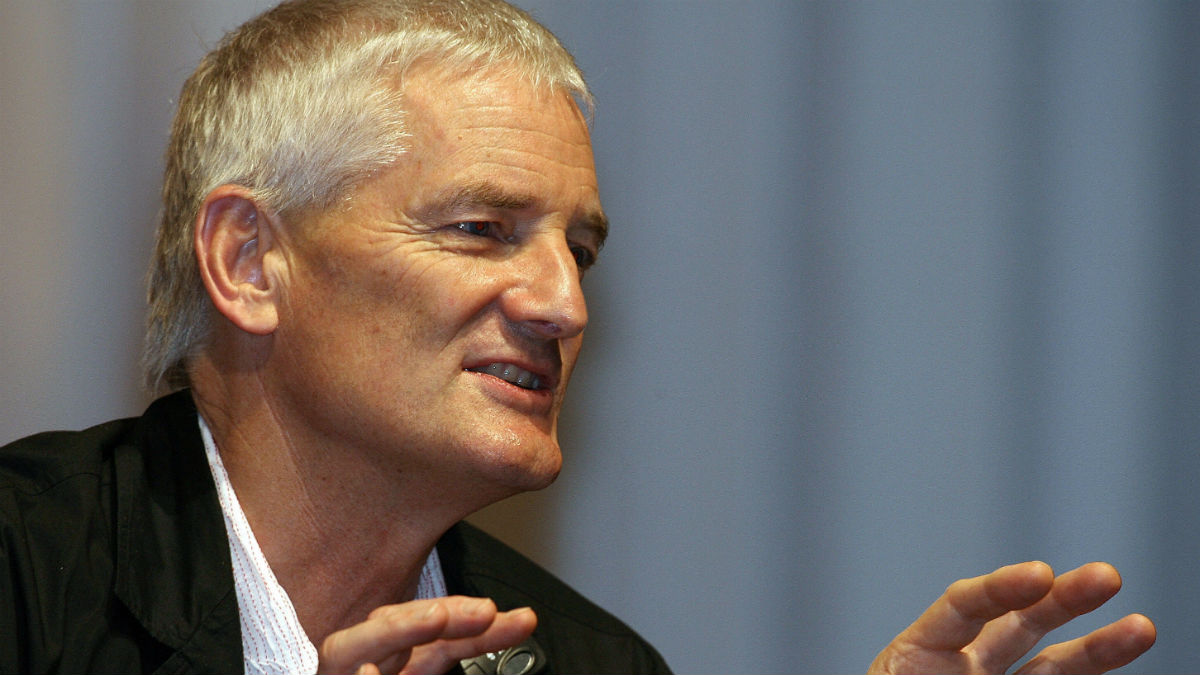James Dyson: Hard Brexit tariffs a 'tiny price to pay'
Billionaire claims WTO rules have 'not held us back' as company posts record profits and sales

A free daily email with the biggest news stories of the day – and the best features from TheWeek.com
You are now subscribed
Your newsletter sign-up was successful
Sir James Dyson says there is no threat from an ultra-hard Brexit, in which the UK falls back on World Trade Organization rules to do business with the EU.
Speaking to The Guardian, the billionaire innovator, who supported the Leave campaign in last year's EU referendum, said tariffs of five to ten per cent were a "tiny price to pay" for trading with Europe.
He added that they had "not held us back at all" and were a fraction of the cost of national corporation taxes.
The Week
Escape your echo chamber. Get the facts behind the news, plus analysis from multiple perspectives.

Sign up for The Week's Free Newsletters
From our morning news briefing to a weekly Good News Newsletter, get the best of The Week delivered directly to your inbox.
From our morning news briefing to a weekly Good News Newsletter, get the best of The Week delivered directly to your inbox.
Dyson's goods, although designed in the UK, are manufactured in Singapore and so are already subject to WTO tariffs in order to be sold in the European single market.
Dyson was speaking as his company announced record sales of £2.5bn, an increase of 45 per cent, and a profit jump of more than 40 per cent to £631m for 2016.
These stellar figures were driven by fast-growing markets in Asia, with sales up 244 per cent in China, 266 per cent in Indonesia and 200 per cent in the Philippines.
As such, Dyson told the BBC he was "enormously optimistic" about Brexit as it will open up the UK to trade deals with rapidly expanding economies.
A free daily email with the biggest news stories of the day – and the best features from TheWeek.com
"Europe's only 15 per cent of the global market and the really fast-expanding markets are in the Far East," he said.
"I'm enormously optimistic because looking outwards to the rest of the world is very, very important because that's the fast-growing bit."
Dyson's comments will be dismissed by pro-single market economists as his company faces no change to its cost base because it has its manufacturing base in Asia, says the BBC.
Also, while it may have to pay tariffs to trade in the EU, Dyson sells specialised products that are often patent protected and so it is less affected by pricing pressures than companies in other sectors.
Dyson added that he does not think the government will seek to remove EU nationals already working in the UK and said students studying maths and science subjects should not be prevented from coming into the country.
"We should make maths, science and engineering students that come to stay in this country welcome here," he said.
-
 What is the endgame in the DHS shutdown?
What is the endgame in the DHS shutdown?Today’s Big Question Democrats want to rein in ICE’s immigration crackdown
-
 ‘Poor time management isn’t just an inconvenience’
‘Poor time management isn’t just an inconvenience’Instant Opinion Opinion, comment and editorials of the day
-
 Bad Bunny’s Super Bowl: A win for unity
Bad Bunny’s Super Bowl: A win for unityFeature The global superstar's halftime show was a celebration for everyone to enjoy
-
 Can the UK avoid the Trump tariff bombshell?
Can the UK avoid the Trump tariff bombshell?Today's Big Question President says UK is 'way out of line' but it may still escape worst of US trade levies
-
 Five years on, can Labour's reset fix Brexit?
Five years on, can Labour's reset fix Brexit?Today's Big Question Keir Starmer's revised deal could end up a 'messy' compromise that 'fails to satisfy anyone'
-
 Why au pairs might become a thing of the past
Why au pairs might become a thing of the pastUnder The Radar Brexit and wage ruling are threatening the 'mutually beneficial arrangement'
-
 Brexit: where we are four years on
Brexit: where we are four years onThe Explainer Questions around immigration, trade and Northern Ireland remain as 'divisive as ever'
-
 Is it time for Britons to accept they are poorer?
Is it time for Britons to accept they are poorer?Today's Big Question Remark from Bank of England’s Huw Pill condemned as ‘tin-eared’
-
 Is Brexit to blame for the current financial crisis?
Is Brexit to blame for the current financial crisis?Talking Point Some economists say leaving the EU is behind Britain’s worsening finances but others question the data
-
 Labour shortages: the ‘most urgent problem’ facing the UK economy right now
Labour shortages: the ‘most urgent problem’ facing the UK economy right nowSpeed Read Britain is currently in the grip of an ‘employment crisis’
-
 Will the energy war hurt Europe more than Russia?
Will the energy war hurt Europe more than Russia?Speed Read European Commission proposes a total ban on Russian oil